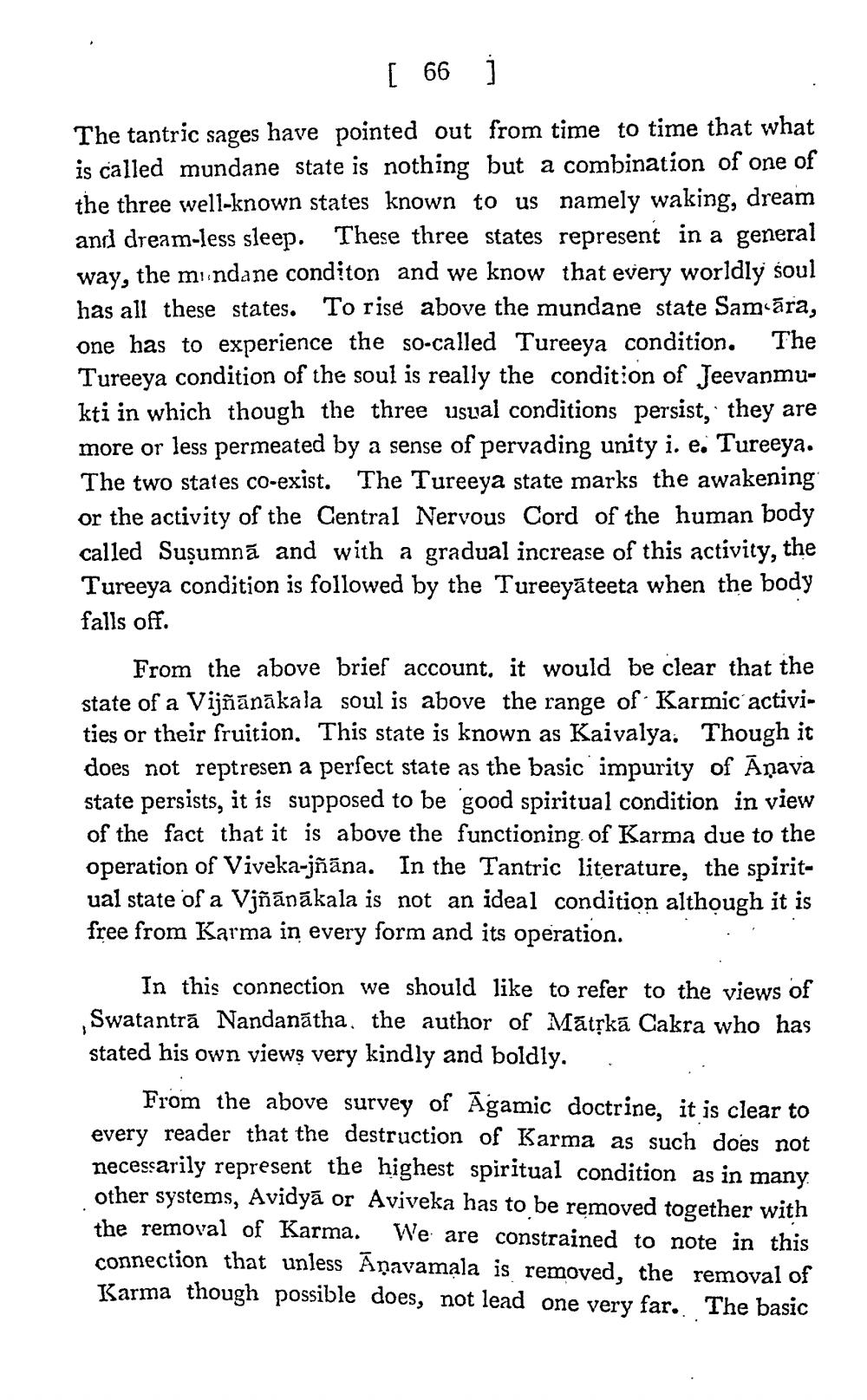________________
[ 66
i
The tantric sages have pointed out from time to time that what is called mundane state is nothing but a combination of one of the three well-known states known to us namely waking, dream and dream-less sleep. These three states represent in a general way, the mindane conditon and we know that every worldly soul has all these states. To rise above the mundane state Sam-āra, one has to experience the so-called Tureeya condition. The Tureeya condition of the soul is really the condition of Jeevanmukti in which though the three usual conditions persist, they are more or less permeated by a sense of pervading unity i. e. Tureeya.
The two states co-exist. The Tureeya state marks the awakening or the activity of the Central Nervous Cord of the human body called Suşumnā and with a gradual increase of this activity, the Tureeya condition is followed by the Tureeyāteeta when the body falls off.
From the above brief account, it would be clear that the state of a Vijñānākala soul is above the range of Karmic activities or their fruition. This state is known as Kaivalya. Though it does not reptresen a perfect state as the basic impurity of Anava state persists, it is supposed to be good spiritual condition in view of the fact that it is above the functioning of Karma due to the operation of Viveka-jñāna. In the Tantric literature, the spiritual state of a Vjñānākala is not an ideal condition although it is free from Karma in every form and its operation. .!
In this connection we should like to refer to the views of Swatantră Nandanātha, the author of Mátrkā Cakra who has stated his own views very kindly and boldly.
From the above survey of Agamic doctrine, it is clear to every reader that the destruction of Karma as such does not necessarily represent the highest spiritual condition as in many other systems, Avidyā or Aviveka has to be removed together with the removal of Karma. We are constrained to note in this connection that unless Anavamala is removed, the removal of Karma though possible does, not lead one very far. The basic




